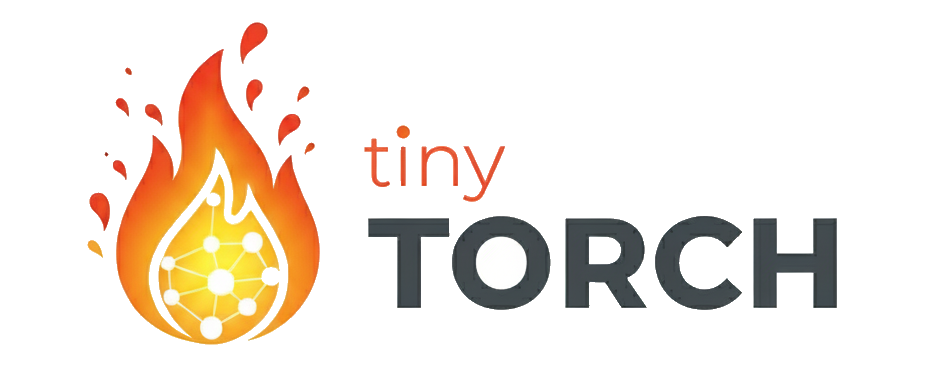📚 Additional Learning Resources#
Complement Your TinyTorch Journey
Carefully selected resources for broader context, alternative perspectives, and production tools
While TinyTorch teaches you to build complete ML systems from scratch, these resources provide broader context, alternative perspectives, and production tools.
TinyTorch Learning Resources:
Track Your Progress → - Monitor capability development and learning progression
Progress Tracking → - Technical details on capability testing
Testing Guide → - Comprehensive testing methodology
Achievement Showcase → - Portfolio development and career readiness
🎓 Academic Courses#
Machine Learning Systems#
CS 329S: Machine Learning Systems Design (Stanford)
Production ML systems, infrastructure, and deployment at scaleCS 6.S965: TinyML and Efficient Deep Learning (MIT)
Edge computing, model compression, and efficient ML algorithmsCS 249r: Tiny Machine Learning (Harvard)
TinyML systems, edge AI, and resource-constrained machine learning
Deep Learning Foundations#
CS 231n: Convolutional Neural Networks (Stanford)
Computer vision and CNN architectures - complements TinyTorch spatial modulesCS 224n: Natural Language Processing (Stanford)
NLP and transformers - perfect follow-up to TinyTorch attention module
📖 Recommended Books#
Systems & Engineering#
Machine Learning Systems by Prof. Vijay Janapa Reddi (Harvard)
Comprehensive systems perspective on ML engineering and optimization - the perfect companion to TinyTorchDesigning Machine Learning Systems by Chip Huyen
Production ML engineering, data pipelines, and system designMachine Learning Engineering by Andriy Burkov
End-to-end ML project lifecycle and best practices
Implementation & Theory#
Deep Learning by Ian Goodfellow, Yoshua Bengio, Aaron Courville
Mathematical foundations - the theory behind what you implement in TinyTorchHands-On Machine Learning by Aurélien Géron
Practical implementations using established frameworks
🛠️ Alternative Implementations#
Different approaches to building ML systems from scratch - see how others tackle the same challenge:
Minimal Frameworks#
Micrograd by Andrej Karpathy
Minimal autograd engine in 100 lines. Micrograd shows you the math, TinyTorch shows you the systems.Microtorch by Kipre
PyTorch-like API in pure Python. Microtorch focuses on clean API design, TinyTorch emphasizes systems engineering and scalability.Tinygrad by George Hotz
Performance-focused educational framework. Tinygrad optimizes for speed, TinyTorch optimizes for learning.Neural Networks from Scratch by Harrison Kinsley
Math-heavy implementation approach. NNFS focuses on algorithms, TinyTorch focuses on systems engineering.
🏭 Production Internals#
Framework Deep Dives#
PyTorch Internals by Edward Yang
How PyTorch actually works under the hood - a great read as see what you built in TinyTorch corresponds to the real PyTorchPyTorch Documentation: Extending PyTorch
Custom operators and autograd functions - apply your TinyTorch knowledge
Building ML systems from scratch gives you the implementation foundation most ML engineers lack. These resources help you apply that knowledge to broader systems and production environments.
🚀 Ready to Begin Your Journey?#
Start with the fundamentals and build your way up.
📖 See Essential Commands for complete TITO command reference.
Your Next Steps:
Quick Start Guide → - 15-minute hands-on experience
Track Your Progress → - Understand capability development
Course Introduction → - Deep dive into course philosophy
🎯 Transform from Framework User to Systems Engineer
These external resources complement the hands-on systems building you'll do in TinyTorch
